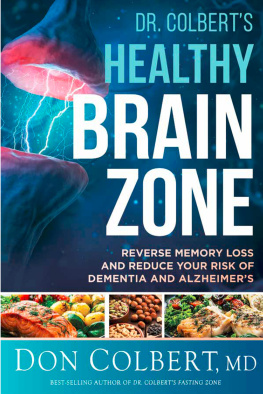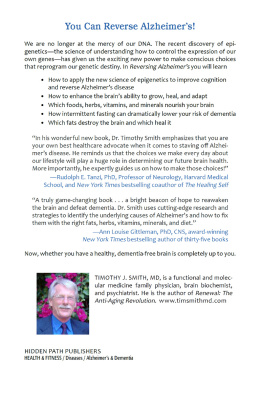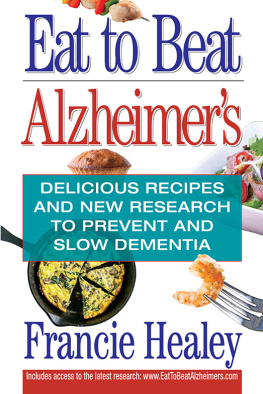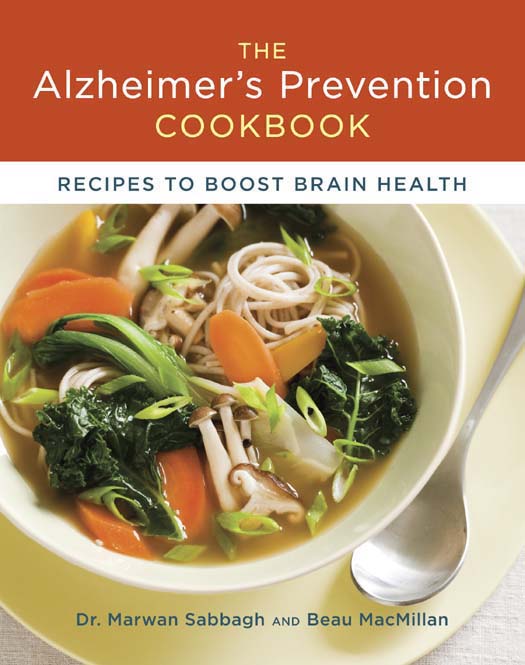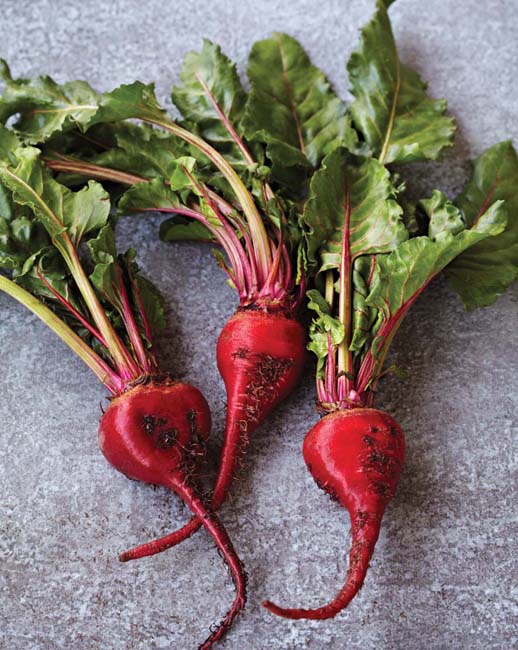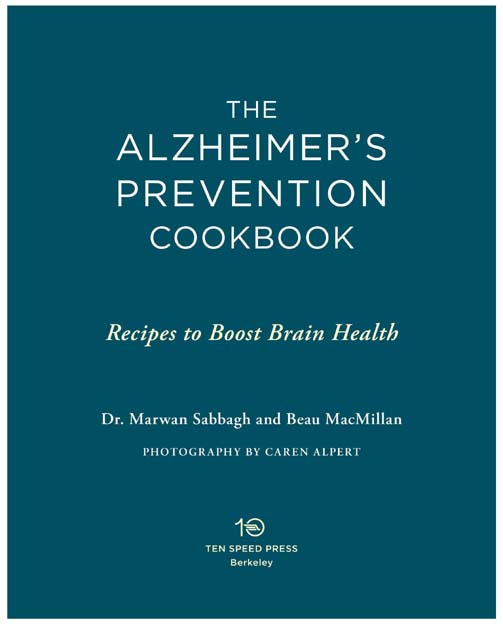Copyright 2012 by Dr. Marwan Sabbagh and Beau MacMillan
Photographs copyright 2012 by Caren Alpert
Front cover and photograph copyright 2012 by Leo Gong
All rights reserved.
Published in the United States by Ten Speed Press, an imprint of the Crown Publishing Group, a division of Random House, Inc., New York.
www.crownpublishing.com
www.tenspeed.com
Ten Speed Press and the Ten Speed Press colophon are registered trademarks of Random House, Inc.
Library of Congress Cataloging-in-Publication Data is on file with the publisher.
All photographs are by Caren Alpert with the exception of the by Leo Gong
eISBN: 978-1-60774-248-7
Food styling by Katie Christ
Prop styling by Carol Hacker
v3.1
To my wife Ida and my two sons, Habib and Elias.
MARWAN SABBAGH
Contents
Acknowledgments
MARWAN:
This book would not be possible without the efforts of many people whose patience, passion, and dedication made my ideas come to life here. First, I want to thank my coauthor Beau MacMillan, who jumped into the project on faith. His enthusiasm has been inspiring. Next, I wish to thank Kari Stuart from International Creative Management who facilitated the book production and arrangement with Ten Speed. I want to thank the publication team at Ten Speed, particularly Sara Golski for her patience and skilled leadership in guiding Chef Beau and me through the process. This book is greatly enhanced in terms of content, language, and appeal because of the efforts of writer Laura Moser and photographer Caren Alpert. Both understood the project concept from the beginning and were able to bring the content to life in a wonderful and vibrant manner.
I also want to thank my family. My wife, Ida, and my sons, Habib and Elias, were patient with the all-consuming efforts that go into these book projects. I want to thank my dear friends Pat and Duffy McMahon for lending a kind and thoughtful ear to the project and then introducing me to Chef Beau. I want to acknowledge my assistant Myste Havens who set up countless conference calls for this project. Finally, I want to acknowledge my colleagues in the Arizona Alzheimers Consortium and the Banner Sun Health Research Institute who stimulate my passion for Alzheimers prevention and treatment, and most importantly, my patients, who every day make me understand why I do what I do.
BEAU:
I would like to extend my sincerest appreciation to Marwan for inviting me to take part in this amazing book. It has been an honor to work with him, and I am thankful for this opportunity and for everything I have learned from him along the way. I would also like to thank my sous chef, Russell LaCasce, for all of his support and devotion in helping compile these recipes. I am grateful to have had such a wonderful team at Sanctuary, who assisted me during throughout this process. Finally, I could not have imagined some of these recipes without the inspiration of fresh produce from Delightful Quality Produce. I am truly thankful to have had such tremendous support from everyone involved in making this book happen.
Introduction: Preventing Alzheimers Disease with Nutrition
I f youve picked up this book, its probably because youve witnessed the ravages of Alzheimers disease on someone you loveperhaps your mother or father, or even your sister or brotherand you fear the day when you might find yourself in the same position.
Youre not alone. Alzheimers ranks among the greatest health-care crises of the twenty-first century, and the numbers become even more dire with every passing year. According to the Alzheimers Association, there are currently 5.4 million people diagnosed with Alzheimers disease in the United States alone and up to 27 million affected people worldwide. In the States, theyre nurtured by 14.9 million unpaid caregivers. According to the Alzheimers Association, these nearly 15 million Alzheimers and dementia caregivers provide 17 billion hours of unpaid care valued at $202 billion annually. Because of the toll this takes on their own health, these caregivers had $7.9 billion in additional health-care costs in 2010. Many of these caregivers are simultaneously parenting healthy young family members, a distinction thats earned them the unenviable label of the sandwich generation. As they struggle to care for both younger and older loved ones, they often fail to take care of their own health in the processa perfectly understandable, but potentially hazardous, oversight. As a result, many of them suffer from higher rates of health problems, particularly depression.
With the rapidly aging baby boomer population, Alzheimers diseasecurrently the sixth leading cause of death in the United Stateswill continue to affect more and more of us. Some estimate that one in eight baby boomers could develop Alzheimers. In the first six years of this century, while deaths from stroke, prostate cancer, breast cancer, heart disease, and HIV fell, Alzheimers disease deaths increased by a shocking 66 percent. Approximately one in every ten Americans over the age of sixty-five now suffers from Alzheimers, and every year, an estimated 100,000 people die from the disease.
Alzheimers affects so many of us: we either have a loved one who suffers from it, or know someone whose life has been drastically altered by caring for a relative or friend with the disease. The total cost of caring for Alzheimers patients in 2011 was a staggering $183 billion, an $11 billion increase over the preceding year. This figure will continue to rise if we dont take immediate steps to protect the long-term health of our brains.
There is, of course, no known cure for Alzheimers disease to date. Once a patient has been diagnosed with Alzheimers (and this seldom happens before the disease has progressed far beyond the mildest stages), doctors can do little to stop the devastation. Treatment options are limited at this point, and while medications can improve symptoms, they have no real effect on the disease itself.
But the news isnt all grim. Im here to tell you that there are easy, concrete steps every single one of us can take to avoid adding to the ranks of Alzheimers sufferers and becoming just another sobering statistic. Even taking risk factors into account, we can fight to delay the onset of Alzheimers altogetherand one of the most effective ways of doing this is to retool our diets. Thats right. Eating better might help your brain work better and ultimately might stave off Alzheimers.
Sound too good to be true? Well, a number of recent large, population-based studies have provided strong evidence linking a higher dietary intake of specific foodsthose rich in the B-complex vitamins (especially B6, B12, and folates), antioxidants, anti-inflammatories, and unsaturated fatty acidsto a lower risk of developing Alzheimers. Common foods, many of which you already have in your kitchen, can be your frontline weapons in the battle against dementia and cognitive decline. And if those benefits werent enough to convince you, youll also be combating obesity, cancer, heart disease, and a range of other ailments, some of which have been directly linked to Alzheimers.
The inspiration behind this book is simple: With knowledge comes power. That is, with knowledge of current scientific findings, we gain the power to make potentially life-altering changes. And it is only after understanding this sciencesuch as the damage free radicals do to the brain and body, and the link between the degenerative process of Alzheimers and that of diabetesthat you will feel empowered to safeguard the health of your brain. This book is meant to empower you to take concrete steps toward reducing your risk of developing Alzheimers. Since changes in the brain start decades before onset of symptoms, any modification you make now may reap huge rewards in future years.


